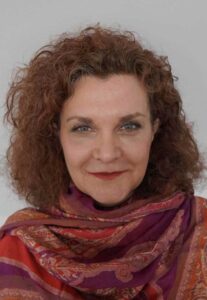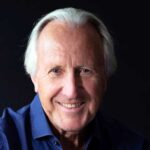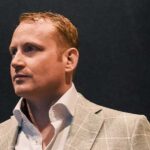
Once upon a time, long long ago….. Well, it feels like that anyway.
Growing up in apartheid South Africa, I developed a strong sense of social conscience and a sense of justice and fairness. These intrinsic qualities, which were born of prejudice and inequality, are palpable within me and are fundamental to my personality and to the very essence of who I am.
Apartheid, also known in Afrikaans as “apartness”, was a system of legislation in South Africa that enacted laws that upheld the restrictions of racial segregation against people of colour.
The implications of these laws were brutal. As a result of pass laws and apartheid policies, Black people were prohibited from entering urban areas without finding a job immediately. They had to carry a passbook with them at all times. Police could randomly stop and search them and ask to see their passbooks. Being caught without one meant being sent to jail. Black people could not marry white people. They were forbidden from entering a shop through the same door or sitting on the same bench as someone who was white. Even different tribes were divided and not allowed to live in the same areas. This meant that if a couple from different tribes got married, they could not live in the same place unless they were granted special dispensation.
Poverty was rife and could be seen everywhere. It was common for children to be without shoes and to be dressed in rags. It was a struggle for parents who worked hard for very little money to feed their children. Draconian laws and the punitive treatment of the black population were rampant.
As a child I would lie in bed and fall asleep ensuring that all of the poor people were safe and warm by bringing them all into a huge imaginary warehouse filled with white sheets and blankets.
We had a large garden filled with fruit trees. I would pick the ripened fruit, put it into plastic bags and leave them scattered around the neighbourhood in the hope that they would be picked up and provide food for someone in need.
My desire to repair, heal, and change the world began then.
Coming from an English-speaking family and being Jewish, I too experienced some discrimination and was called a “Red neck Jew.” Afrikaans-speaking South Africans never forgave the British for their treatment of them during the Boer War. The British established the first concentration camps and subjected the Afrikaners to unspeakable atrocities. As an English speaker, I was lumped in with the British who got sunburn on their necks from the sun. Hence the term “red neck.”Some sections of the community also disliked Jews.
DEI training for me began very early in life as did my training in mental health.
At age 13 I developed Brucellosis. The infection is transmitted through unpasteurized milk and cheese. Fever, joint pain, and fatigue are some of the symptoms. It was difficult to live with the uncertainty of not knowing what was wrong, but it was a fantastic lesson in learning just how uncomfortable it was to know what that feels like. For about 3 years, I was confined to bed and rarely attended school. My mother schlepped me around to every doctor she could find in order to get a diagnosis. Staying home and being my own tutor was a delight for me since I hated school.
During this period I became severely depressed and spent hours reading and writing poetry, which was an excellent catharsis. A deep analysis of myself and naval gazing began. My love of psychology and human behaviour sprouted forth like a rampant weed.
As a result of feeling misunderstood and believing that I would be the cure for every misunderstood teenager, I decided to become a child psychologist. My future was set!
It was during one of my poetry reading marathons that I had an epiphany. The experience I had was one of the most enlightening in my life. I knew my life would be about learning, about what I now call “soul evolution,” and that every experience and person would teach me something. Even today, I still hold on to this belief, which has guided me through difficult times. I can honestly say that I have never gone through a period where I haven’t learned something.
In the course of my career, I have been extraordinarily fortunate and privileged to be trusted with the opportunity to travel both as a therapist and as a coach. I have worked with clients who have taught me so much about life and about myself, as well.
Along with Van Gogh, Steven Fry, Buzz Aldrin, Winston Churchill, and numerous others, I was diagnosed with Bi-Polar at 21. As with many Bi-Polar people, I like to focus on the positives, including that I am creative and paint, sculpt, and act. Additionally, I’ve come up with some innovative suggestions for clients with great results.
The positive side of having Bi-Polar is that I have a deep understanding of people in the corporate world who are struggling with low self-esteem, depression, anxiety, and stress.
Having a passion for neuroscience, I have learned that neuroplasticity (the brain’s ability to change itself) is so powerful and that one can, with some guidance, change their neural pathways to think differently and develop a positive internal narrative that can empower them. I’m a walking, living, breathing neuroplasticity advertisement!
Spurred on by my life experiences, I studied to become a psychotherapist and got three different qualifications working with adults, children and adolescents, and families.
For 27 years, I worked in schools, prisons, pupil referral units, Child and Adolescent Health Services, charities, and private practice.
Like a piece of charred toast, I was burned out. It was as if I had a sticker on my forehead reading, “If you’re unusual or difficult, please have me as your therapist.” As the charred crumbs were being scraped off into the dustbin, a good friend in the corporate world commented that they thought I would be a great coach.
A call with a colleague was set up and thus my coaching career began and I’ve never looked back!
Life isn’t a straight line. I took a detour.
But let’s rewind a bit.
My desire to become a child psychotherapist fell by the wayside as I looked at the advertising world that my older sister worked in. All the glitter and sparkle of it lured me in.
After a Marketing Management Diploma I went into advertising and public relations and worked on some very big brands. It was at that particular time in my life that I learned just how difficult it was to work under bad managers who made bad decisions and in a very chaotic environment.
This huge learning curve served me later in life when I became an executive coach.
As a child I never felt like I fitted in. I used to stand in the back yard and watch the planes flying over thinking, “One day that will be me.”
The time arrived. My dream to leave South Africa to live abroad and find my fortunes on the gold paved streets of America. I departed with $2000, two suitcases, only to find that the sidewalks weren’t paved with gold. It was a period of intense psychological and emotional growth worth its weight in gold.
I encountered a completely different culture, which had its funny moments, despite the difficulties. The first time somebody said to me, “I’ll see you later” I stopped and thought, “Did I make an arrangement with this person? When will I see them later?”
I had very funny and strange situations of people asking me if I lived in a tree house and rode on the backs of elephants to school, not to mention a completely different work ethic to South Africa.
I met many stereotypes during my travels; a gentleman in a straw hat with a piece of straw in his mouth, red chequered top and dungarees spent several minutes giving me directions. I didn’t understand a word. His southern accent was so broad, he could have been speaking another language. I nodded to thank him and drove off wondering if he’d understood my accent.
Leaving a country that’s been your home can be traumatic. I don’t think that people understand the psychological shock that one can go through. When I left South Africa I actually had PTSD from the difficulties and struggles I faced.
I had times being without work and having no support. At one point I was robbed and ended up with 25c and a ticket back to South Africa. I was determined. I stayed and took on three jobs to get myself back on my feet.
I was in a big country that is not very sympathetic to people that don’t have any means. There were times I saw furniture piled on the sidewalk, because the owner couldn’t pay the rent.
To quote Charles Dickens, “It was the best of times, it was the worst of times, it was the age of wisdom, it was the age of foolishness…”
It takes time, at least two years, to adjust to moving to a different country. It’s something can relate to when coaching executives who have moved across the world and have to adjust to a new culture, making new friends, learning new systems and even learning about completely different products in supermarkets!
A green card was proving elusive so I did the next best thing that I could versus going back to South Africa. I went to Israel.
If America was a big culture shock, Israel was even more of a culture shock.
When I first arrived, somebody did this upside down hand gesture, with their fingers bunched together, which I found incredibly rude. I encountered it everywhere and subsequently discovered that it means, “Wait. Patience.” Living in Israel required loads of patience. One could drown in the red tape.
My brain struggled to learn Hebrew as the characters were as curly as my hair.
It was an education, learning how to try and live and thrive in a country with a different language and a very different way of looking at life.
Standing in a queue at a bank the one day, someone came up to me and inserted themselves in front of me. When I pointed out that he should go to the back of the line, he told me, “I was here yesterday when the bank closed, so this is where I should be today.”
All these experiences enriched me in so many ways and have been immensely helpful when working with clients from different cultures.
I loved the history of Israel, but it is a tough country to live in. I knew that it wasn’t where I belonged.
I started to apply for jobs and got one with a medical company doing PR. I arrived in London not knowing a soul. It was daunting and lonely.
With time and perseverance I settled in and at last, for the first time in my life, I felt like I was home.
After seven years travelling around the world I was ready to become a therapist. All my experiences, difficulties and struggles were like jewels in terms of helping me relate to other to others. Being a global traveller and having lived and worked in many places stood me in very good stead.
It also taught me just how resilient and creative I could be.
When I eventually finished working as a therapist, and got into coaching I soon realised that you can’t separate the person just into the difficulties that they present with. Everyone is a product of their past experiences. They have a fundamental role to play in understanding what the sticking bits are. Knowledge is power. Coaching isn’t therapy either, but toe dipping into the past to discover unhelpful constructs or moments that keep you back from moving forward to me are an important part of positive change.
Clients come to coaching with a multitude of things that keep them back or feeling unhappy or unfulfilled. Impostor syndrome, lack of confidence, lack of self-worth, wanting to be a better leader, a better communicator and relationship builder as well as a whole lot of other things.
What distinguishes me and my work is my deep understanding of human behaviour, of psychology and what drives, motivates or inhibits people. We form life scripts at a very early age and these go on to impact our relationships and perspective throughout life. Early attachments when we are children impact our leadership styles.
My background and both professional and life experiences enable me not only to understand what people are going through and get to the heart of the issues quickly, but also help people move on and have a deeper understanding of themselves and why they’re doing the things they do.
Neuroscience, and my knowledge of how the brain can change itself, allows me to help clients understand that their brains can change and how one can create new neural pathways which will help them move forward.
I’m more than a coach; between my therapy training, neuroscience knowledge and life experience, I’m able to help people move forward very quickly.
Long before big corporations turned their attention to the mental wellbeing of their employees, I was out there championing the importance of mental health wellbeing in the workplace. It wasn’t considered as something that was important but I persevered and enabled many large corporations to focus on this issue. It has become more mainstream now, but there is still a long way to go.
Thinking of becoming a coach?
What I would say to anyone wanting to be a coach is to have the tenacity to stick with it because it is a highly saturated market, and to differentiate oneself is difficult. Finding a niche is imperative.
Getting the right training through an accredited organisation is super important, as is being part of a professional body.
Consider going for some therapy to increase ones self awareness because it’s incredibly helpful when working with people to realise what your issues are and what the client’s issues are and not to get them mixed up. Being able to disassociate with what’s your mental load and being able to concentrate just on where the client is coming from is essential to good coaching.
 Desirée Silverstone
Desirée Silverstone
Head Honchos Executive Coaching







Wow that’s a mind-blowing story told so articulately. So many pieces of beautiful language too I can see this as a book.. I definitely want to hear more about so much of it!
It’s amazing the journey of life and how it’s so involved and unique for every one of us. Something you understand more and more the more you grow yourself I find.
I love the way Desirée owns her story, ‘good’ and ‘bad’ and has not only used that experience, but also become highly trained too, so that she can help others.
I found this article to be poignant, insightful and very informative. Desiree writes beautifully and the article opened my mind to the possibilities of changing one’s career and made me feel more open to the idea of looking at Business Coaching for our Team.
Thank you for sharing, wonderful personal story and clarity on the why and the how of becoming a coach
I think the article encapsulated the difficulties of moving home, and why it’s so high on the list of stressful things.
I remember as a nine year old white child, writing in my elderly nanny’s passbook; giving her permission to stay out later than the curfew time imposed.
A fascinating story of many life twists and turns that can bring someone to where they ultimately wish to settle.
Great description of the challenges life offers and using those as opportunities for growth
I devoured this article twice. It’s so Well written and gives such a personal journey. I’m now looking up the author, because frankly, she sounds like someone I need to know!
Desiree’s honesty is ferocious and inspiring! All her criticisms are constructive and actionable. Her love of people and joy in improving humankind is commendable. Full marks to the lady!
What an inspirational journey overcoming such obstacles! Great read and thank you for sharing
Scharlene Silver
I enjoyed this article for many reasons. The personal and honest style the author has; the inspiring message it gives and the way it left me feeling after reading it. That’s always the tell tale sign of something good, for me personally.
Very insightful article. Also having grown up in South Africa (and now living in Australia), I can empathize with your reflections. I look forward to reading your next article.
This article was written by someone so brave and honest.
I wonder if her next article or any later articles will include pressing issues that coaches face when dealing with families trying to cope with “new definitions” and the impact on business workspace
I hope you don’t mind but the article inspired me to contact you for some coaching. I hope you can fit me in as soon as possible. I hope you are not taking a Xmas break.
Thankyou Desiree for sharing your story with us. I love how you so honestly speak to the complexity of what it is to be human & at the same time the beautiful leaning opportunities there are for all of us in those dark challenging moments. Thankyou
Well written, emotionally deep, and compelling to find out more about this person’s journey. All of us will have life challenges and setbacks…how we handle them is less important than what we learn from how we handled them. Ms. Silverstone has enough of these life challenges to share with the readers. I agree that there might be a book here , as Nicci Lou, commented. The more a person has overcome obstacles and succeeds, the more I would be willing to take coaching advise from this individual. Well done!
You have been so open and honest about your struggles and wonders and want an adventure your life has been! Easy for someone to open up to you. Your life experiences, show you really understand.
A great read – about much more that coaching.
What a well written, engaging article. I agree with Nicci Lou; I would love to hear more about Desiree’s life experiences.
One of the things that struck me the most is how as a child Desiree had the wherewithal to leave fruit around the neighborhood for people to find. As a child growing up in the American suburbs, I was not nearly as aware of other’s problems.